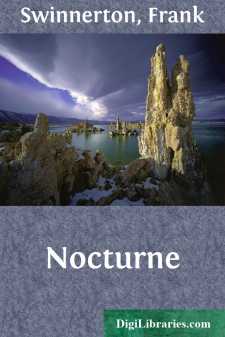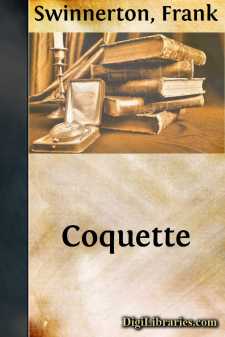Categories
- Antiques & Collectibles 13
- Architecture 36
- Art 48
- Bibles 22
- Biography & Autobiography 813
- Body, Mind & Spirit 142
- Business & Economics 28
- Children's Books 17
- Children's Fiction 14
- Computers 4
- Cooking 94
- Crafts & Hobbies 4
- Drama 346
- Education 46
- Family & Relationships 57
- Fiction 11829
- Games 19
- Gardening 17
- Health & Fitness 34
- History 1377
- House & Home 1
- Humor 147
- Juvenile Fiction 1873
- Juvenile Nonfiction 202
- Language Arts & Disciplines 88
- Law 16
- Literary Collections 686
- Literary Criticism 179
- Mathematics 13
- Medical 41
- Music 40
- Nature 179
- Non-Classifiable 1768
- Performing Arts 7
- Periodicals 1453
- Philosophy 64
- Photography 2
- Poetry 896
- Political Science 203
- Psychology 42
- Reference 154
- Religion 513
- Science 126
- Self-Help 84
- Social Science 81
- Sports & Recreation 34
- Study Aids 3
- Technology & Engineering 59
- Transportation 23
- Travel 463
- True Crime 29
Nocturne
by: Frank Swinnerton
Categories:
Description:
Excerpt
INTRODUCTION BY H.G. WELLS
"'But do I see afore me, him as I ever sported with in his times of happy infancy? And may I—may I?'
"This May I, meant might he shake hands?"
—DICKENS, Great Expectations.
I do not know why I should be so overpoweringly reminded of the immortal, if at times impossible, Uncle Pumblechook, when I sit down to write a short preface to Mr. Swinnerton's Nocturne. Jests come at times out of the backwoods of a writer's mind. It is part of the literary quality that behind the writer there is a sub-writer, making a commentary. This is a comment against which I may reasonably expostulate, but which nevertheless I am indisposed to ignore.
The task of introducing a dissimilar writer to a new public has its own peculiar difficulties for the elder hand. I suppose logically a writer should have good words only for his own imitators. For surely he has chosen what he considers to be the best ways. What justification has he for praising attitudes he has never adopted and commending methods of treatment from which he has abstained? The reader naturally receives his commendations with suspicion. Is this man, he asks, stricken with penitence in the flower of his middle-age? Has he but just discovered how good are the results that the other game, the game he has never played, can give? Or has he been disconcerted by the criticism of the Young? The Fear of the Young is the beginning of his wisdom. Is he taking this alien-spirited work by the hand simply to say defensively and vainly: "I assure you, indeed, I am not an old fogy; I quite understand it." (There it is, I fancy, that the Pumblechook quotation creeps in.) To all of which suspicions, enquiries and objections, I will quote, tritely but conclusively: "In my Father's house are many Mansions," or in the words of Mr. Kipling:
"There are five and forty ways
Of composing tribal lays
And every blessed one of them is right."
Indeed now that I come to think it over, I have never in all my life read a writer of closely kindred method to my own that I have greatly admired; the confessed imitators give me all the discomfort without the relieving admission of caricature; the parallel instances I have always wanted to rewrite; while, on the other hand, for many totally dissimilar workers I have had quite involuntary admirations. It isn't merely that I don't so clearly see how they are doing it, though that may certainly be a help; it is far more a matter of taste. As a writer I belong to one school and as a reader to another—as a man may like to make optical instruments and collect old china. Swift, Sterne, Jane Austen, Thackeray and the Dickens of Bleak House were the idols of my youthful imitation, but the contemporaries of my early praises were Joseph Conrad, W.H. Hudson, and Stephen Crane, all utterly remote from that English tradition. With such recent admirations of mine as James Joyce, Mr. Swinnerton, Rebecca West, the earlier works of Mary Austen or Thomas Burke, I have as little kindred as a tunny has with a cuttlefish....



